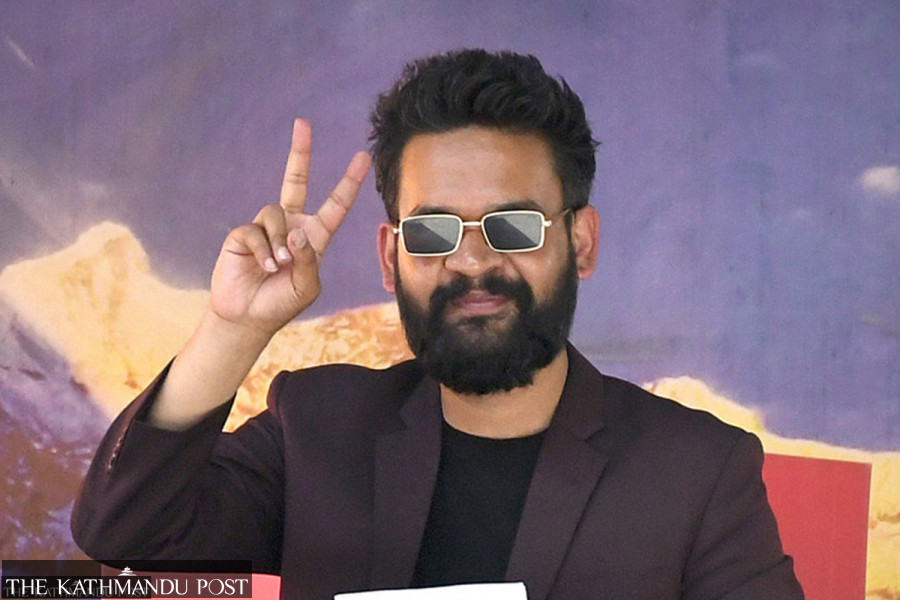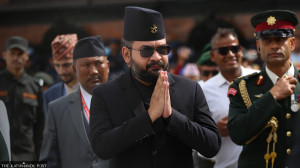Editorial
Balen Shah’s faulty glasses
In his heart, Kathmandu’s mayor is still a rapper out there to diss and destroy his imaginary opponents.
Kathmandu Mayor Balendra Shah is unstoppable. A man on a mission, Shah shows no fear of hurdles, legal or otherwise, and is unequivocal about his mission to transform the metropolitan city. Only that he is headed in the wrong direction, and his mission is guided by a myopic vision of what a city should be like.
For Shah, a city is a gentrified, boutique-style showpiece that has no place for the poor. Each day, Shah’s city police officers perform an unbearable spectacle on the streets, upending fruit carts and chasing poor vendors. His officers regularly roam around in bulldozers, razing buildings even when the homeowners plead for a chance to produce their papers of legitimate ownership. In Shah’s vision, a municipal mayorship is a one-man show where there is no space for debate, discussion and difference of opinion. Hardly has the mayor of the capital city in his short stint in power shown any inclination towards the spirit of cooperation between three levels of governance as envisioned by the constitution of the federal democratic republic.
In over a year of his service—or disservice, as his victims may want to put it—there is perhaps no public institution with which the rapper-turned-mayor has not sparred. The latest such institution is the judiciary, as he signalled in a tweet on Thursday that he would dishonour the Patan High Court’s interim order to allow the showing of Hindi films in the metro city. Those who have faced Shah’s wrath in the past belong to the high corridors of Singha Durbar to street corners alike—those in between the extremes include educational institutions, the Civil Aviation Authority of Nepal, private homeowners, and a hapless heritage structure along the Tukucha rivulet—as Shah bulldozes his way through established norms of public participation and democratic governance.
When the people of Kathmandu Metropolitan City chose Shah as their mayor with a landslide victory, they had voted not for his street-level popularity but the hope that he would herald a change. Sick and tired of the established party leaders mired in corruption and controversy, people found in Shah a young, educated leader who represented the passion of the youth for development and prosperity. After all, he had complained in one of his pre-electoral rap songs that there was no one to speak for the poor. He had indeed been elected as their leader. If only his electorate knew that he considered the poor an enemy.
There is no denying his attempts at bringing some positive changes—he has named and shamed schools and hospitals that fail to fulfil their duties; he has made some earnest attempts at managing the city’s ever-growing waste problem; and made some significant strides at digitalising the city’s public service system. However, the good is almost always shadowed by the bad, and Shah’s stunts are ugly. At his heart, Balendra Shah, the Balen of his rapper avatar, increasingly appears to be a rebel without a cause. Pumped up by the cheers of a sadistic crowd that gathers to enjoy the spectacle of the mayor’s bulldozers razing buildings made with somebody’s blood and sweat, Shah ticks all the marks of populist desperation bordering on authoritarianism.
Hiding his true self behind those iconic shades, the mayor of Kathmandu is fast metamorphosing from a youth icon into a reckless figure out there to diss, dismiss and defeat his imaginary opponents—and that is a dangerous trait in a democracy.




 12.12°C Kathmandu
12.12°C Kathmandu














